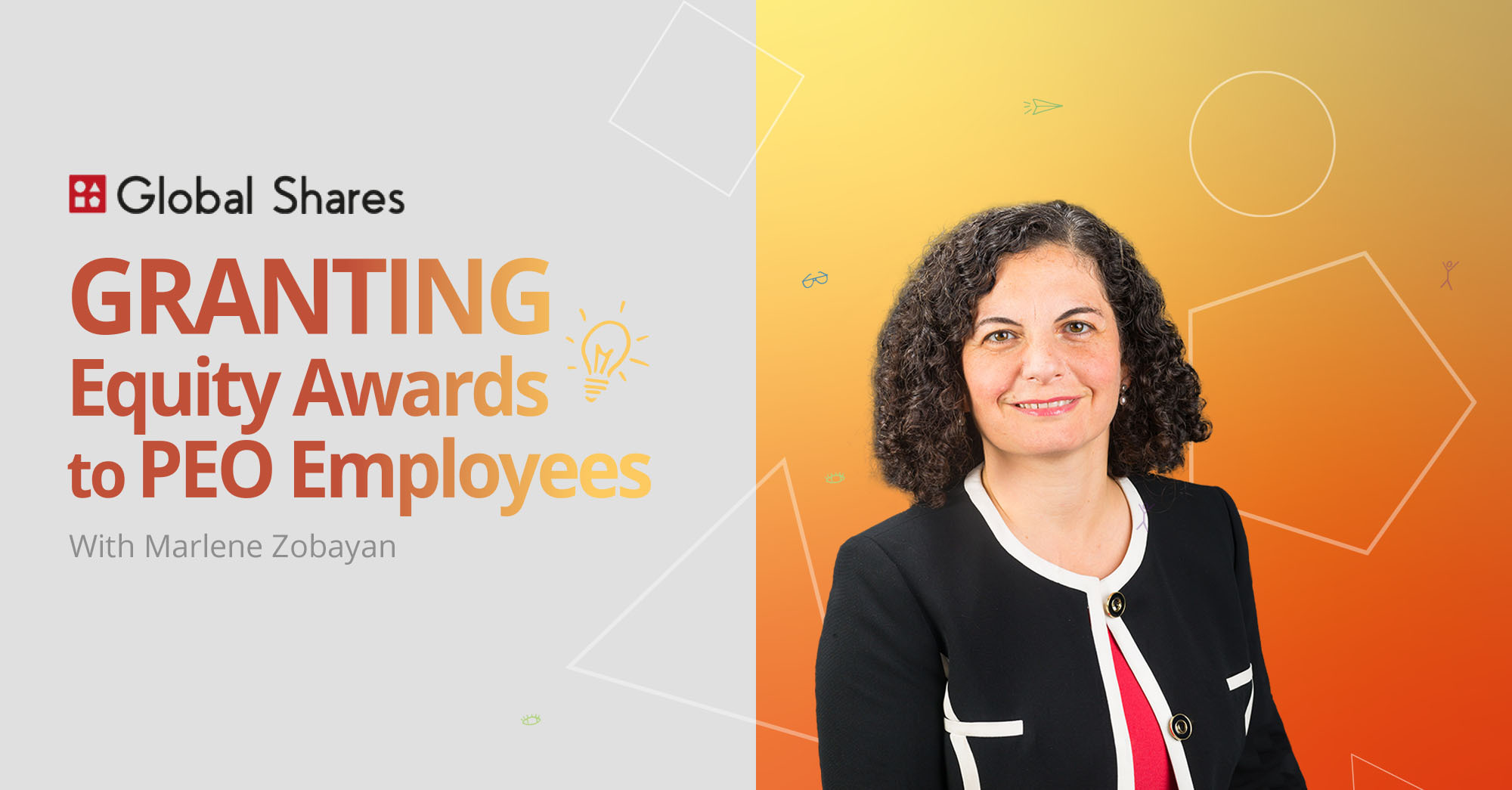While it might seem like an obvious motivator the decision of whether or not to allow Employee Share Plan access to PEO employees doing work for your company is not always a straightforward decision explains Marlene Zobayan, of Rutlen Associates LLC.
“Granting equity to individuals who are not legal employees of the issuing company group can create all sorts of complications. The complexities vary by country and, in each case, the company should perform its due diligence before making the grant,” she says, urging caution on the matter and suggesting that companies first of all review the terms of the contract agreed with their PEOs to ensure they are aligned.
As a small-to-medium sized business, or maybe a company that has expanded internationally into a new territory, there are many advantages to using a PEO (Professional Employer Organisation) or Employer of Record (EOR). Where a company does not have a local corporate presence, a large pool of potential employees available to them or does not yet have the breadth of expertise or system capabilities for HR, Payroll and other functions PEOs are of great benefit, freeing up valuable resources since they are effectively hiring out the required employees to you.

PEOs have been around for a long time and the industry has grown significantly in the last thirty years.
According to the National Association of Professional Employer Organisations there are about 4 million individuals employed by PEOs, approximately the same number as those employed by Walmart (U.S.), Amazon, Kroeger, and Home Depot.”
Since their work product and job role are managed on a day-to-day basis by you, the client, it’s understandable that you would consider incentivising and rewarding these employees in the same way you do your own employees. Issues around granting access to your Share Plan arise though because the PEO remains the legal, contractual employer of the individual and provides their payroll, benefits and other employer services.
So with that in mind we asked Marlene Zobayan to take us through some of the stumbling blocks you might encounter when considering granting Share Plan access to your PEO employees.
Plan Governance:
The plan itself must allow for non-employees to participate. Companies should ensure that the award agreement is suitable for PEO employees and, should these later convert to regular employees, that the terms carry over.
Income Tax Obligations:
Even though the issuer will not be the legal employer often, but not always, the equity income will be taxed in the same as for regular employees. However it is usually incumbent on the PEO to report on this income and withhold taxes due. There may not be an easy way to facilitate this and additionally the PEO might not have the systems to enable such reporting or withholding.
Additional Tax Requirements and Restrictions:
Some countries have additional tax reporting requirements for equity compensation, such as in Australia where a company which has issued equity compensation to a PEO employee may have a requirement to comply with the ESS reporting obligation, depending on the nature of the arrangement. Sometimes it is the employer’s responsibility to do this reporting, but it can also be the issuer’s responsibility. Also, if the company offers tax qualifying plans in certain countries, such as the U.K., PEO employees may not be eligible to participate.
Cross-border concerns:
In a landmark ruling of 2020 the European Court of Justice determined it is the organisation which has the actual management of the employees, and not the legal contractual employer, that is key in determining who is the employer for social tax purposes. This difference could be irrelevant if both PEO and PEO employees are based in the same country, but in this particular case the PEO and employees were Cyprus-based while the client they were providing services to was located in the Netherlands.
Securities Laws:
Many countries have securities exemptions for offers of share compensation made to employees. Those exemptions may not extend to non-employees or employees of a PEO.
Foreign Exchange:
Some countries have foreign exchange limitations but have extended exemptions for employee equity compensation. Such exemptions may not apply for non-employees. China’s State Administration of Foreign Exchange procedures, for example, are generally not available for non-employees, except in certain circumstances where there is a labour relationship between the PEO employee and a local entity affiliated with the issuer.
Data Privacy:
There should already be data privacy agreements between the PEO, the PEO employee and the issuer, however there will be further requirements to make sure those agreements extend to vendors, share plan administrators, brokers, auditors, etc.
Find out more about us
Employee ownership – simplified. It’s what we do. At Global Shares, with our award-winning software platform and dedicated team of over 300 equity professionals we can cover everything, from advising on the best form of enrolment for participants to trading, compliance, tax and everything in between.
Contact us
Please Note: This publication contains general information only and Global Shares is not, through this article, issuing any advice, be it legal, financial, tax-related, business-related, professional or other. The Global Shares Academy is not a substitute for professional advice and should not be used as such. Global Shares does not assume any liability for reliance on the information provided herein.








